
Ludwig van Beethoven was a German composer and pianist. He is one of the most revered figures in the history of Western music; his works rank among the most performed of the classical music repertoire and span the transition from the Classical period to the Romantic era in classical music. His early period, during which he forged his craft, is typically considered to have lasted until 1802. From 1802 to around 1812, his middle period showed an individual development from the styles of Joseph Haydn and Wolfgang Amadeus Mozart, and is sometimes characterized as heroic. During this time, Beethoven began to grow increasingly deaf. In his late period, from 1812 to 1827, he extended his innovations in musical form and expression.

Immortal Beloved is a 1994 biographical film written and directed by Bernard Rose and starring Gary Oldman, Jeroen Krabbé, Isabella Rossellini and Johanna ter Steege. The film narrates the life of composer Ludwig van Beethoven in flashbacks while it follows Beethoven's secretary and first biographer Anton Schindler's (Krabbé) quest to ascertain the true identity of the Unsterbliche Geliebte addressed in three letters found in the late composer's private papers. Schindler journeys throughout the Austrian Empire interviewing women who might be potential candidates, as well as through Beethoven's own tumultuous life.

The String Quartet No. 14 in C♯ minor, Op. 131, was completed by Ludwig van Beethoven in 1826. It is the last-composed of a trio of string quartets, written in the order Opp. 132, 130, 131.
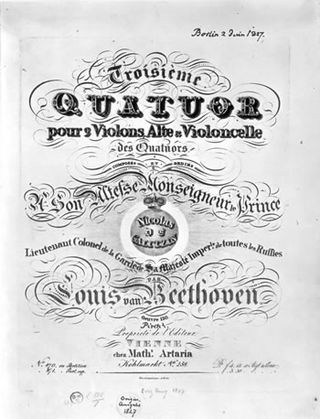
The String Quartet No. 13 in B♭ major, Op. 130, by Ludwig van Beethoven was completed in November 1826. The number traditionally assigned to it is based on the order of its publication; it is actually Beethoven's 14th quartet in order of composition. It was premiered in March 1826 by the Schuppanzigh Quartet and dedicated to Nikolai Galitzin on its publication in 1827.

Murray David Perahia is an American pianist and conductor. He has been considered one of the greatest living pianists. He was the first North American pianist to win the Leeds International Piano Competition, in 1972. Known as a leading interpreter of Bach, Handel, Scarlatti, Mozart, Beethoven, and Schumann, among other composers, Perahia has won numerous awards, including three Grammy Awards from a total of 18 nominations, and 9 Gramophone Awards in addition to its first and only "Piano Award".
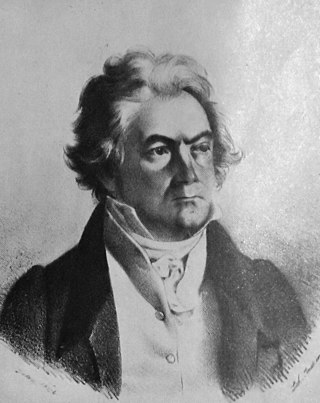
The String Quartet No. 15 in A minor, Op. 132, by Ludwig van Beethoven, was written in 1825, given its public premiere on November 6 of that year by the Schuppanzigh Quartet and was dedicated to Count Nikolai Galitzin, as were Opp. 127 and 130. The number traditionally assigned to it is based on the order of its publication; it is actually the thirteenth quartet in order of composition.
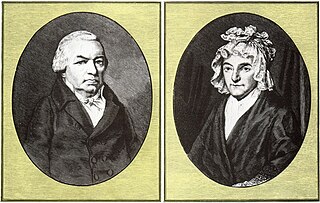
Johann van Beethoven was a German musician, teacher, and singer who sang in the chapel of the Archbishop of Cologne, whose court was at Bonn. He is best known as the father of the celebrated composer Ludwig van Beethoven (1770–1827). Johann became an alcoholic later in his life and was at times an abusive father to Ludwig. At 18, Ludwig had to obtain an order to force Johann to support his family. Johann died soon after Ludwig moved to Vienna to study with Joseph Haydn.

The Immortal Beloved is the addressee of a love letter which composer Ludwig van Beethoven wrote on 6 or 7 July 1812 in Teplitz in what would be today Czech Republic. The unsent letter is written in pencil on 10 small pages. It was found in the composer's estate following his death and is now in the Berlin State Library.

Prince Frederick Louis Christian "Ferdinand" of Prussia, was a Prussian prince, soldier, composer and pianist. Prince Louis Ferdinand fought in the Napoleonic Wars. The 1927 German film Prinz Louis Ferdinand was a biopic of his life.

Copying Beethoven is a 2006 American dramatic film released by Metro-Goldwyn-Mayer and directed by Agnieszka Holland which gives a fictionalized take on the triumphs and heartaches of Ludwig van Beethoven's last years.

Archduke Maximilian Francis of Austria was Elector of Cologne and Grand Master of the Teutonic Knights. He was the youngest child of Holy Roman Empress Maria Theresa and Francis I, Holy Roman Emperor. He was the last fully functioning Elector of Cologne and the second employer and patron of the young Ludwig van Beethoven.
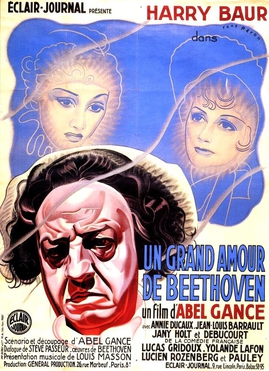
Beethoven's Great Love (French: Un grand amour de Beethoven is a 1936 French historical musical drama film directed by Abel Gance and starring Harry Baur, Annie Ducaux and Jany Holt. It portrays the career of the composer Ludwig van Beethoven. In Britain and the United States it was sometimes alternatively titled The Life and Loves of Beethoven.
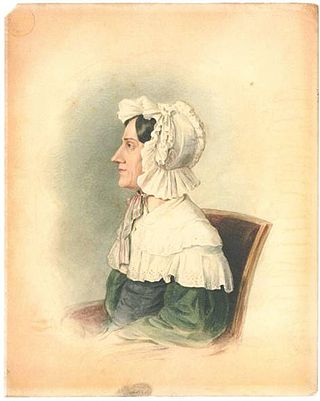
Nannette Streicher was a German piano maker, composer, music educator, writer and a close friend of Ludwig van Beethoven.
Kaspar Anton Karl van Beethoven was a brother of the composer Ludwig van Beethoven.
Eroica is a 1949 Austrian film depicting composer Ludwig van Beethoven's life and work. The film is directed by Walter Kolm-Veltée, produced by Guido Bagier with Walter Kolm-Veltée and written by Walter Kolm-Veltée with Franz Tassié. It was entered into the 1949 Cannes Film Festival.
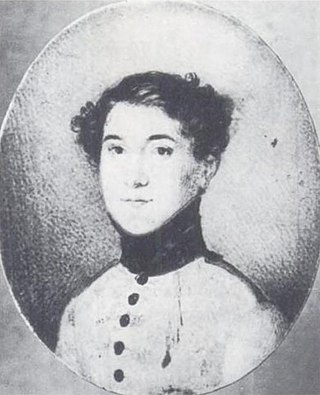
Karl van Beethoven was the only son born to Kaspar Anton Karl van Beethoven and Johanna van Beethoven and the sole nephew of composer Ludwig van Beethoven. He is mainly remembered for being the center of a bitter custody battle between his mother and famous uncle after his father's death.
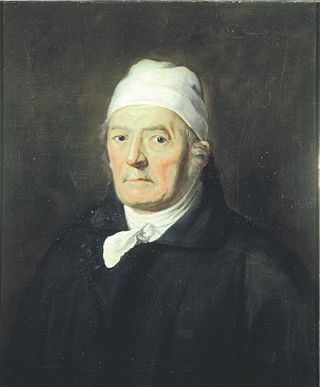
Nikolaus Simrock was a German horn player at the court of the Elector of Cologne in Bonn and a music publisher. He was a friend of Ludwig van Beethoven and founder of the N. Simrock music publishing house. "Highly esteemed as a man and a musician", he remained in contact with Beethoven throughout the 1790s and is regarded as a "reliable witness" to Beethoven's years in Bonn.
The composer Ludwig van Beethoven has been the subject of a number of biographical films.
Louis van Beethoven is a biographical film that came out in December 2020 for the 250th anniversary of Beethoven's birth. The movie shows the story of the world-famous composer from different perspectives. The title shows the name that was used in his youth.














